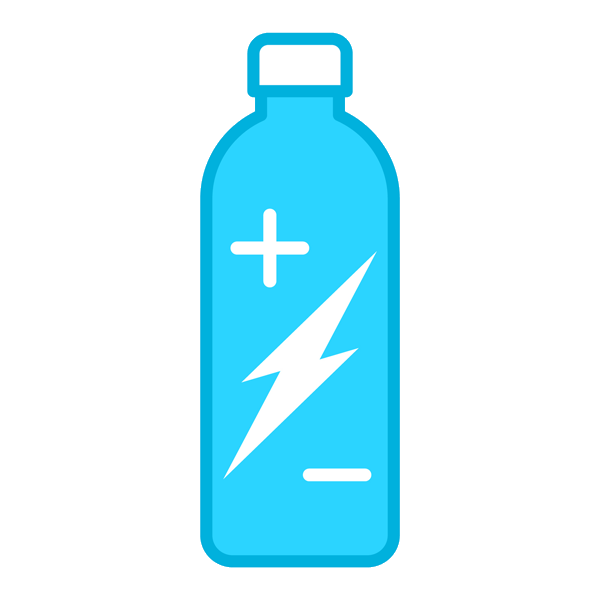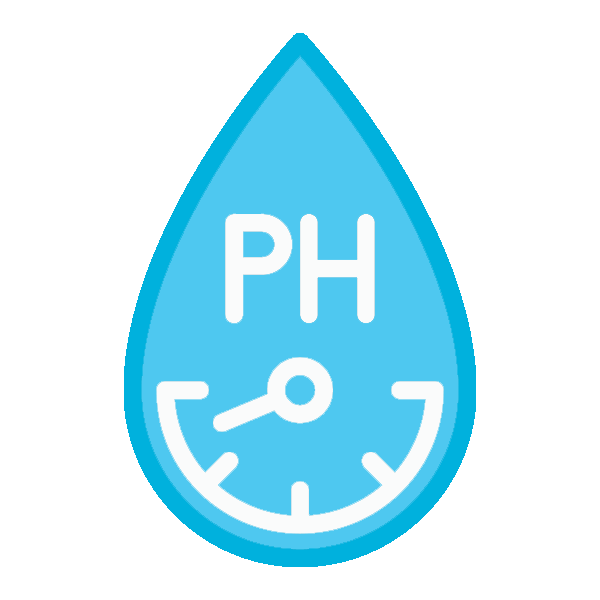Navigating hydration: Separating science from marketing hype
Water – the cornerstone of human vitality. From regulating body temperature to facilitating digestion and maintaining cognitive function, its significance for overall health is indisputable.
While the longstanding NHS recommendation of eight glasses of water a day serves as a useful rule of thumb, individual hydration needs vary widely based on factors such as age, sex, activity levels, and environmental conditions. But can we optimise our hydration strategies?
In the realm of health and wellness, hydration stands as a topic rife with misinformation and myth. As consumers become increasingly health-conscious and seek new efficient and more effective hydration solutions to fit their busy lifestyles, the quest for clarity intensifies.
/filters:format(webp)/prod01/cdn/media/stirling/services/research/images/water-banner-1920X689.jpg)
The quest for clarity
From the surge in social media trends like #WaterTok sharing sometimes questionable hydration tips, to the cult following of oversized hydration vessels like the Stanley Quencher cups, hydro hacks continue to gain momentum.
And with studies revealing that 83% of consumers are saying they want some functional benefits in their water, the global beverage industry is taking notice and responding. Fortified with vitamins, minerals, acids, herbs and raw fruit or vegetables, functional water promises enhanced hydration and additional health benefits. It also contains additives that claim to offer extra nutritional value, known as aquaceuticals and are often accompanied by promoting associated health benefits such as boosting your immune system, cognitive function, and gut health.
It's perhaps no surprise there has been a 10% growth in soft drink and sports nutrition launches with a hydration-related claim over the last three years alone. The functional water market, valued at $15.93 billion in 2023 and projected to reach $30.10 billion by 2032, reflects consumers' growing demand for innovative hydration solutions. Products like the fruit-based Dash Water, launched just seven years ago, is now the fastest growing drink in the UK, selling 24 million cans in 20 countries, as people seek out a hydrating and sugar-free alternative to traditional soft drinks.
However, amidst this boom, the narrative surrounding hydration has become obscured by marketing hype and conflicting messages. While science underscores the importance of hydration, marketing claims often exaggerate benefits, promising everything from improved athletic performance to radiant skin.
This article aims to dissect some of the popular subcategories of the functional water market, separating myth from reality to empower consumers with evidence-based insights into optimal hydration practices.
While science underscores the importance of hydration, marketing claims often exaggerate benefits, promising everything from improved athletic performance to radiant skin.
The quest for clarity underpins a number of our PhD opportunities.

Electrolyte water – The ultimate hydration aid?
In recent years, electrolyte water has gained widespread popularity as a go-to beverage for replenishing essential minerals lost through sweat during exercise. Regularly marketed as a superior alternative to plain water, electrolyte drinks promise to enhance hydration, boost athletic performance, and prevent dehydration-related issues. But amidst the marketing hype surrounding electrolyte water, do these beverages truly live up to their claims?
The science behind electrolyte water
Electrolytes are minerals that carry an electric charge and play a vital role in regulating various bodily functions, including muscle contractions, nerve impulses, and fluid balance. Common electrolytes include sodium, potassium, calcium, magnesium, and chloride, all of which are essential for maintaining proper hydration and supporting overall health.
Proponents of electrolyte water argue that these beverages offer a convenient way to replenish electrolytes lost through sweat during exercise, thereby preventing dehydration and improving performance. If these drinks are more palatable and encourage individuals to drink more, they can effectively support hydration status. However, electrolyte water and drinks often contain added sugars, flavourings, and other artificial ingredients purported to enhance taste and boost energy levels, further enticing consumers seeking a quick hydration fix.
Electrolytes and sugars aid in water transport from the intestine into the body’s water compartment and can help to retain the fluid for longer. In some situations, this is beneficial such as prolonged activity in hot, humid environments or endurance sports.
However, the broader health claims associated with these beverages warrant closer scrutiny. Research suggests that for most individuals engaging in moderate physical activity, plain water is sufficient for meeting hydration needs, and electrolyte supplementation may be unnecessary.
Research suggests that for most individuals engaging in moderate physical activity, plain water is sufficient for meeting hydration needs, and electrolyte supplementation may be unnecessary.
University of Stirling is one of the top rated universities in the world for Sport science – start you career here.
Separating fact from fiction
Critics of electrolyte water argue that the marketing claims surrounding these beverages often exaggerate their benefits and downplay potential drawbacks. While electrolyte drinks may help prevent dehydration in specific circumstances and are not inherently harmful, their widespread consumption as a daily hydration solution may be unwarranted for most individuals. The issue arises when people consume these drinks instead of water or when they are not exercising, potentially leading to unnecessary salt and sugar intake.
A great case in point is coconut water. Despite its reputation as a natural hydrator, thanks to its electrolyte composition and high levels of potassium and sodium, commercial coconut water may not deliver as expected. Recent research conducted by the University of Stirling reveals that the potassium levels found in popular and readily available coconut water products have little to no effect on the drinks' hydration potential.
Electrolyte water may offer benefits for athletes and individuals engaged in prolonged or intense exercise, but its broader health claims should be met with scepticism. While electrolyte water and other electrolyte-enhanced drinks can help prevent dehydration and support athletic performance in specific scenarios, they are not a panacea for hydration and should not replace a varied intake of beverages as the primary source of fluid intake for most individuals. Moderation with any fluid intake is recommended.
A balanced diet, including fruits, vegetables and a variety of beverages including plain water will help to meet your hydration and electrolyte needs naturally. Very few people need to add salts to their existing diet.
A balanced diet, including fruits, vegetables and plain water will help to meet your hydration and electrolyte needs naturally.

Alkaline water – the miracle elixir?
In recent years, alkaline water, which has a pH above 7, has surged in popularity. Touted by celebrities and wellness influencers as a miracle elixir capable of enhancing health and vitality, it’s often advertised benefits range from improved hydration to anti-ageing properties and even cancer prevention. Alkaline water has captured the imagination of consumers seeking the next easy remedy for their health woes. But amidst the fervour surrounding alkaline water, does it live up to the hype?
In reality, the scientific evidence does not support the need for choosing it over safe tap or regular bottled water. The lungs, kidneys and liver effectively maintain the body's pH balance, ensuring blood pH stays slightly alkaline as needed for good health. Thus, drinking alkaline water is unnecessary since these organs naturally regulate and balance the body's pH levels.
/filters:format(webp)/filters:no_upscale()/prod01/cdn/media/stirling/services/research/images/nurse-drinking-water-760X470-copy.png)
Hydration in busy professions
In many industries, employees face time constraints that make it difficult to stay hydrated. Nursing is a major area of study at the University of Stirling and therefore much time has been devoted to helping nurses excel in their role. A dehydrated body can cause many problems, especially for those that are very active throughout shifts.

A balanced approach to hydration
So what is the takeaway? Well ultimately, there is no elixir of hydration.
Save your money and rather than succumbing to (often expensive) marketing gimmicks, try to focus on maintaining a balanced diet, staying hydrated with regular water – tap or filter is fine - and engaging in regular physical activity to support your overall health and wellbeing.
In the realm of hydration, simplicity often reigns supreme, and the quest for optimal health begins with informed decision-making based on scientific evidence.
The content of this article is provided for general information only. Always obtain healthcare advice from a registered professional. Visit NHS inform for more information.
